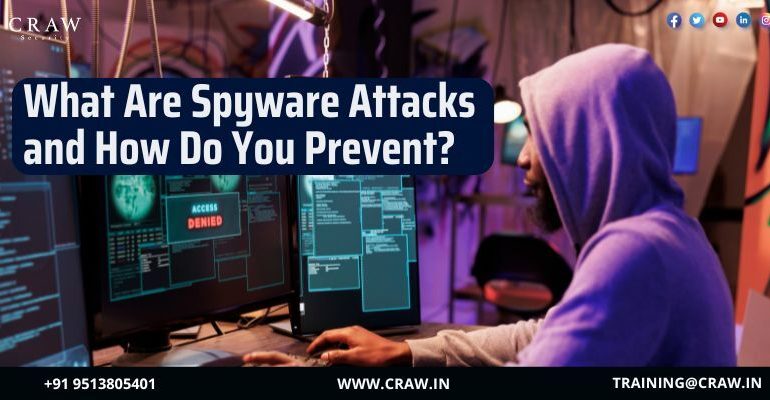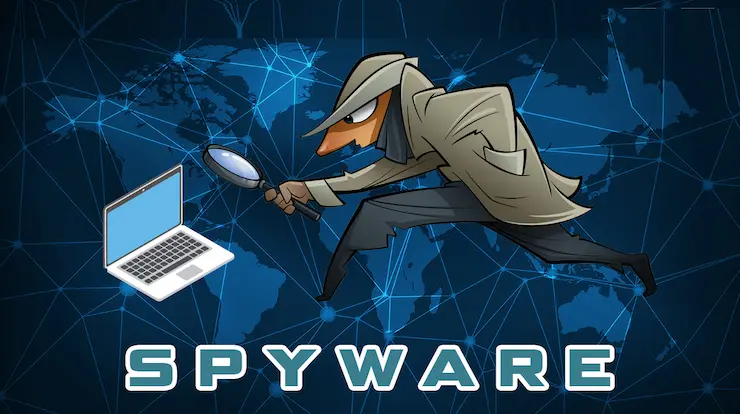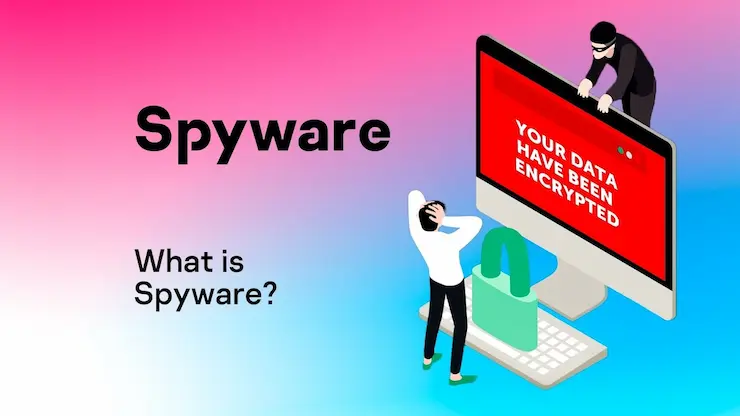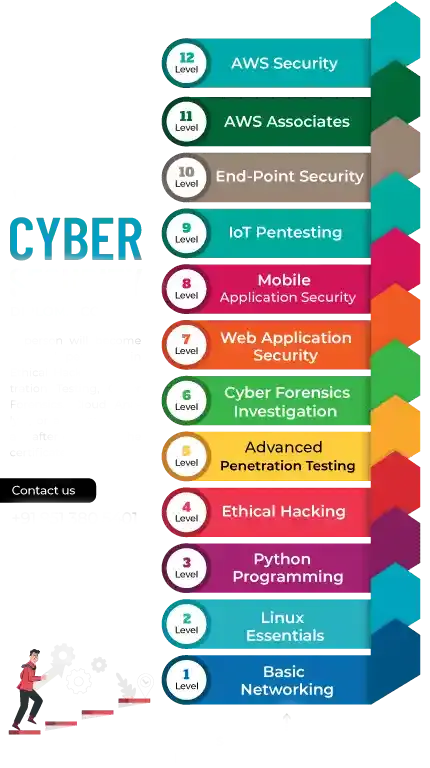What Are Spyware Attacks and How Do You Prevent?

What Are Spyware Attacks and How Do You Prevent?
Introduction: What Are Spyware Attacks?
Spyware has emerged as a powerful enemy in the long-lasting digital arena of cyber threats, endangering the security and privacy of organizations and individuals. Moreover, there is none that can avert the harmful effects of spyware until or unless you rely completely on traditional physical storage methods, which is not possible in today’s digital world.
Hence, for the sake of a better understanding of Spyware and the best practices to avert its harmful effects on our digital world, we sincerely require a good source of cybersecurity education from a credible source, such as Craw Security. In addition, Craw Security is also the best penetration testing service provider in India working for so long in shaping up a good future for yourself.
At Craw, which is a prominent provider of penetration testing services in India, thoroughly examines the complexities of spyware assaults and provides valuable insights and solutions to counteract these forms of digital espionage. Furthermore, this article explains the fundamental nature of spyware, the ways in which it operates, and superb category strategies to secure our digital assets.

What is Spyware?
Spyware, an illegal form of software, infiltrates a user’s computing device to surveil their activities without their prior authorization or awareness. The principal aim of this software is to acquire sensitive data, like confidential information and internet browsing patterns, which may be utilized for malicious purposes such as identity theft, financial gain, or targeted cyber-attacks.
How Does Spyware Work?
Spyware functions by entering your computer or mobile device quietly. After being activated, it has the capability of monitoring your online activities, recording your keystrokes, gaining access to files, and covertly transferring the acquired data to cybercriminals or external entities. It is especially hazardous due to its covert nature, which allows it to operate for extended periods of time without being detected.
What is Spyware in Computer?
Spyware, within the context of computing, pertains to any software that infiltrates a system with the intention of secretly collecting data. It is capable of causing privacy breaches, modifying system settings, and degrading network performance, all of which pose serious security risks.

Types of Spyware
Understanding the various varieties of spyware is vital for preventing its use. Key varieties consist of:
| Adware | Ads that are undesired and are frequently included in integrated software. |
| Trojans | Software that pretends as legitimate in order to implement malicious activities covertly |
| Keyloggers | Keystrokes are recorded in order to intercept sensitive data such as credit card numbers and passwords. |
| System Monitors | Monitors every action performed on a computer, encompassing accessed websites, communications, and applications utilized. |
How to Prevent Spyware on Android?
Android devices are at risk of spyware infection. To safeguard your device, take into account the following steps and procedures:
- Only install applications from trustworthy sources, including the Google Play Store.
- Update your device and applications frequently to repair vulnerabilities.
- Use a dependable mobile security application to identify and eliminate spyware.
- Apps should not be granted superfluous permissions.
How To Prevent Adware?
It is our primary duty nowadays to save ourselves from the harmful effects of Adware, which is technically a form of spyware that bombards you with advertisements, involves:
- Using extensions or software to block advertisements in your browser.
- Preventing the installation of software obtained from untrusted or unverified sources.
- Before downloading software, thoroughly examine the terms and conditions, keeping an eye out for any mention of ad-supported features.
What is Spyware in Cyber Security?
As the name suggests, Spyware is something that was created to spy on people and organizations over the internet with the intention of finding out something that might be useful for the person who is responsible for it. Hence, it is nicely related to cyber security where people need to be aware of such apps or tactics that harm the integrity of their sensitive information at the hands of a malicious hacking professional.
Moreover, spyware constitutes a substantial obstacle in the realm of cyber security. In addition to compromising financial and operational stability, it compromises the privacy of individuals and organizations. User education regarding secure computing practices, the implementation of anti-spyware tools, and routine security assessments are all effective cybersecurity measures against spyware.
FAQs
About What Are Spyware Attacks and How Do You Prevent
1: What are spyware examples?
Some examples of spyware include:
- CoolWebSearch,
- Gator (GAIN),
- Keyloggers,
- Zlob Trojan, etc.
2: What is spyware vs malware?
Spyware is a category of malicious software that is specifically engineered to illicitly gather data from your device. Malware is an all-encompassing term that encompasses any malevolent software designed to damage or exploit programmable devices, services, or networks, including but not limited to viruses, worms, trojan horses, and spyware.
3: What is spyware on a device?
Spyware, when installed covertly on a device, comprises malevolent software designed to surveil and amass data pertaining to one’s activities, preferences, and sensitive information without the user’s awareness.
4: What is the official definition of spyware?
Spyware, as defined by the official terminology, refers to any software designed to surreptitiously collect user information via the user’s internet connection, usually with the intention of conducting advertising.
5: What is a spyware answer?
Spyware is malevolent software designed to gather data from a user’s device or computer without obtaining their consent, frequently with the intention of conducting surveillance or advertising.
6: Is spyware an antivirus?
Spyware cannot function as an antivirus. It is a form of malware that threatens the privacy and security of users. The purpose of antivirus software is to identify, eliminate, and prevent malicious software, such as spyware.
7: What are the three kinds of spyware?
The 3 common types of spyware include:
- Adware,
- Keyloggers,
- Trojans, etc.
8: What are 4 symptoms of spyware?
Four of the main symptoms of spyware infection include the following:
- An abnormal number of pop-up advertisements.
- The computer’s functionality was slowed.
- Alterations to the homepage or browser settings that are not explicated.
- A surge in data consumption or atypical network activity.
9: Is spyware a virus or worm?
Spyware is a distinct entity within the scope of malware, distinct from both viruses and worms. Spyware, as compared to viruses and worms, which have the ability to replicate and disseminate autonomously, generally demands unintentional installation by the user and is primarily concerned with gathering data.
10: Who makes spyware?
Spyware may be developed by governments, advertising agencies, cybercriminals, or any combination thereof. These entities develop spyware to collect data, monitor user activities, or conduct focused advertising or surveillance.
Conclusion
In the bottom line, we would like to say that spyware attacks can generally result in important data breaches, comprising violations of organizational security and personal privacy. In addition, it is widely critical to prioritize awareness, vigilance, and the enforcement of strong cyber security protocols when trying to combat spyware.
Moreover, Craw Security, the best penetration testing service provider in India, is dedicated to providing enterprises and individuals with the necessary information and resources to secure against these cunning cyber threats. By doing so, it guarantees a more secure digital environment for all stakeholders. If you also wish to take advantage of the best VAPT solutions offered by Craw Security to all the needful organizations and people, then you can call us at our 24X7 hotline number +91-9513805401 and have quote from our highly experienced penetration testers.

















